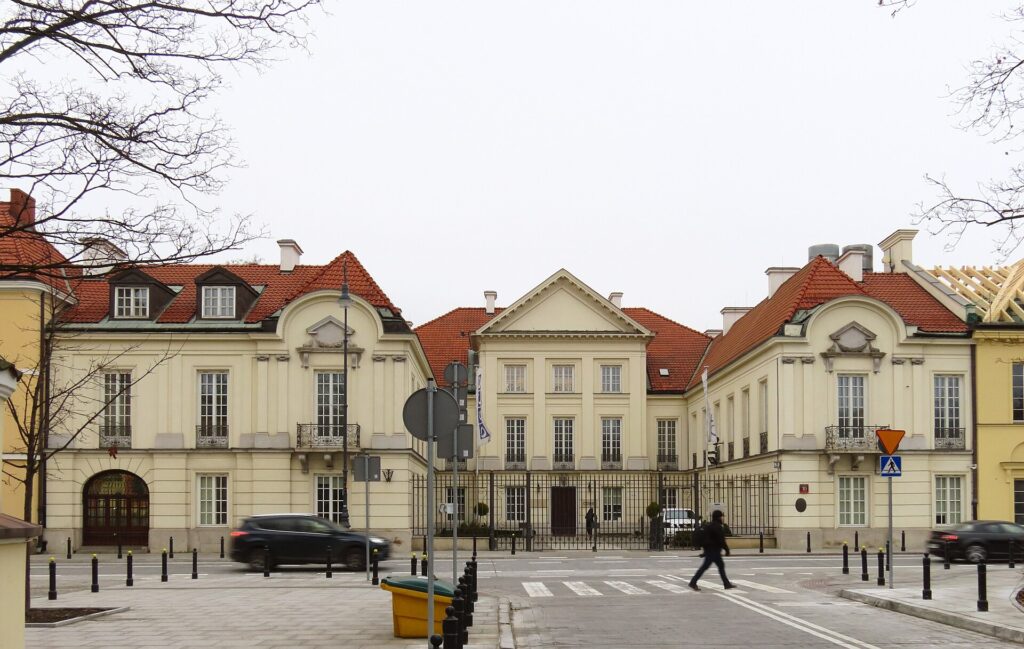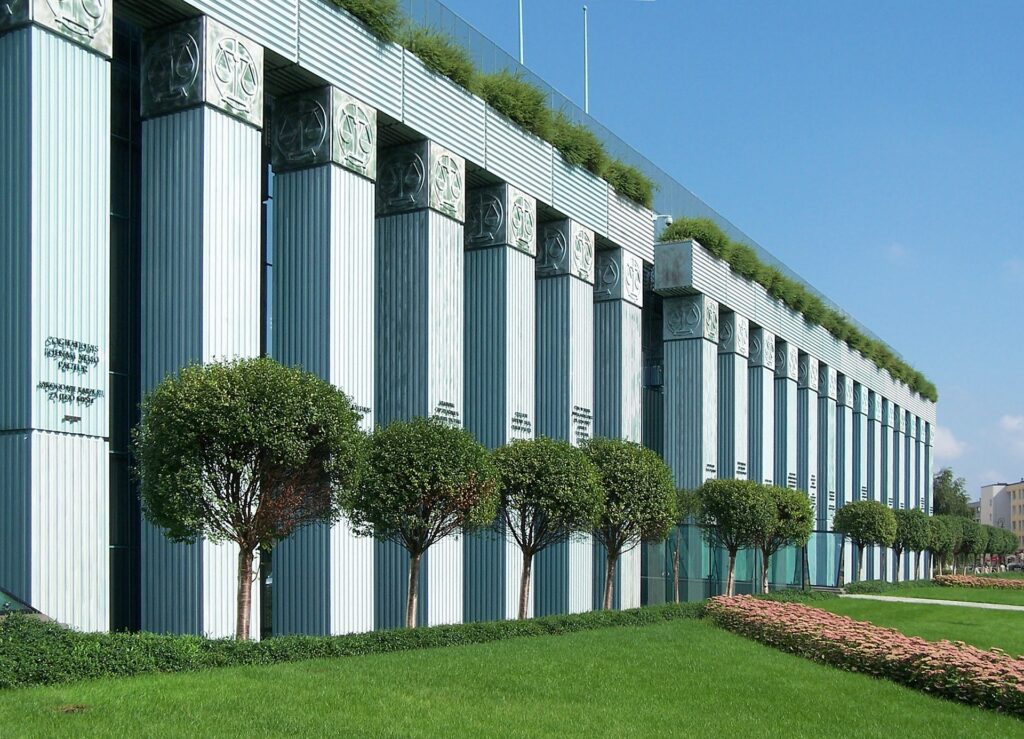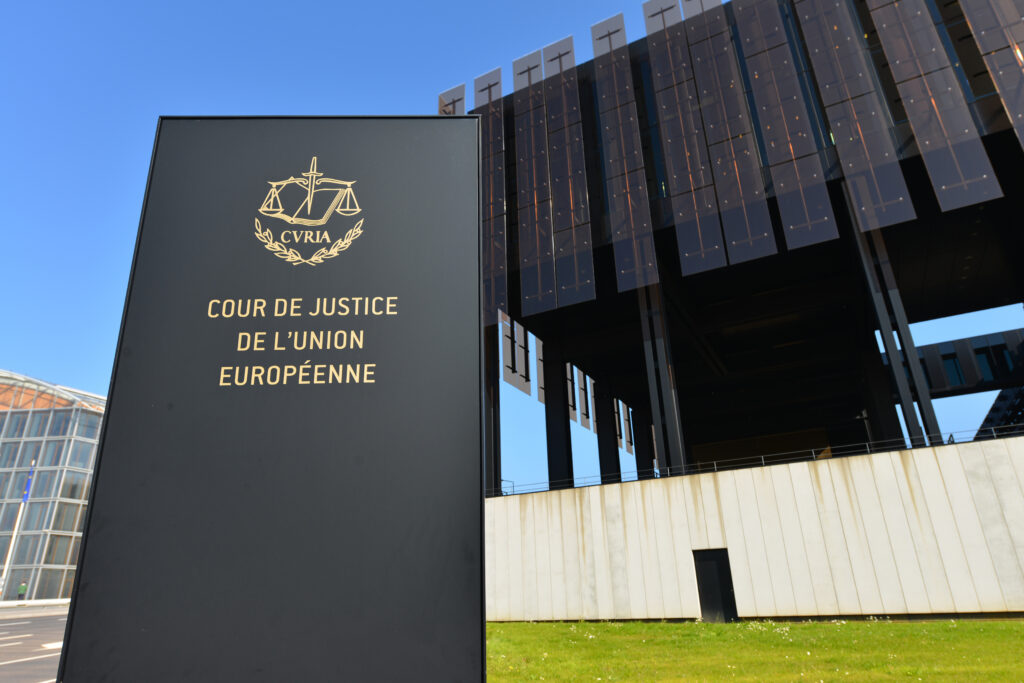Representatives of the OSCE mission that observed the first round of presidential elections in Poland issued a statement pointing to various violations. However, the emphasis placed on certain issues raises doubts.
Shortly after the conclusion of the first round of the presidential elections on 19 May 2025, the Organisation for Security and Cooperation in Europe (OSCE) issued a Statement of Preliminary Findings and Conclusions of the International Election Observation Mission.
In media reports, following the announcement by the Polish Press Agency (PAP), the OSCE’s conclusions were summarized as: ‘Elections in Poland democratic, but with reservations’.
Representatives of Ordo Iuris also took part in consultations conducted by the Observation Mission — a meeting in this regard was held on 7 May 2025.
Wczoraj w siedzibie @OrdoIuris wraz z @W_Przebierala wzięliśmy udział w spotkaniu z Misją OBWE (@OSCE) poświęconą obserwowaniu wyborów prezydenckich w Polsce.
— Jędrzej ZS Jabłoński (@jzsjablonski) May 8, 2025
Wspomnieliśmy o różnych nieprawidłowościach i obawach, związanych z przebiegiem kampanii wyborczej i samych wyborów.… pic.twitter.com/pMcXsF58CN
All issues raised by the Institute’s representatives were, in principle, addressed in the OSCE statement. However, a detailed analysis of the statement raises questions about the validity of the emphasis placed on certain issues.
What is particularly striking is that the OSCE devoted very little space to numerous serious violations of the rule of law — recently discussed in detail on our website — or failed to acknowledge them altogether. Most notably, the report makes no mention whatsoever of the disinformation spread just before the elections by the Scientific and Academic Computer Network – National Research Institute (NASK) on the subject of so-called ‘turnout spots’ encouraging people to vote for Rafał Trzaskowski. NASK was mentioned in the statement only in a positive context, highlighting its role in repelling ‘cyberattacks’ inspired, among others, by the Russian Federation, which allegedly occurred prior to the elections:
Authorities deployed several mechanisms to detect, prevent, and protect election infrastructure and the campaign from external interference, disinformation, and cyberattacks, including awareness-raising and training efforts. […] Although attempted cyberattacks and disinformation campaigns, many of which the relevant Polish institutions linked to sources from within the Russian Federation, surged as the election neared, these were reported to have been identified and countered in a timely manner, containing wider impact. The national expert community found that digital disinformation and electoral interference efforts, assessed as mostly originating from within Poland, employed the tactic of amplifying existing polarizing content with the aim of intensifying societal divisions and diminishing trust in public institutions.
[pp. 12-13 of the statement].
The statement did mention ‘turnout campaigns’ as third-party agitation for or against individual candidates in a way that undermined the transparency of campaign financing, but it also equated them with a niche, grassroots campaign that was completely absent from public debate — namely, “Catholics with Karol Nawrocki.” No mention was made of the serious concerns regarding the financing of these campaigns or the involvement of foreign entities closely associated with political circles of the Hungarian opposition and the American Democratic Party. These latter issues were elaborated on by journalists from Wirtualna Polska in an article published on 22 May 2025.
The issue of Telewizja Polska’s involvement in the ‘pre-election debate in Końskie’, during which serious violations of the Electoral Code allegedly took place, was also not appropriately highlighted, but merely addressed with the following statement:
The involvement of select private broadcasters in the organization of the debate along with TVP, combined with the exclusion of other media outlets, and TVP’s facilitation of a campaign event organized by a contestant drew concerns of some stakeholders, including the KRRiT chairperson. [p. 18-19 of the statement]
Overall, the bias of public television was discussed in the same context as the bias of private media, even though these two types of media differ significantly in terms of their responsibilities. Moreover, the statement noted that:
‘[…] most IEOM interlocutors acknowledge improved media freedoms in the past year […]’ [p. 16 of the statement]
It also suggested that the National Broadcasting Council (a constitutional body whose purpose is to safeguard freedom of speech, the right to information and the public interest in radio and television broadcasting) had become politicised, despite the fact that the method for selecting its members — as largely defined in Article 214(1) of the Constitution — has remained unchanged since 2005. On the other hand, the statement did raise concerns regarding the manner in which the new government took over public media:
The management of public media, Telewizja Polska (TVP), Polskie Radio, and the Polish Press Agency (PAP), was replaced shortly after the change of government in December 2023, through a process that departed from legally required procedures. The subsequent suspension of public media funding by the media regulator and the President coincided with the public media being put into a state of liquidation, in order to allow for direct ad hoc government funding. This, combined with the insufficient safeguards against political interference in editorial decisions and funding allocation mechanisms, undermined their editorial independence and financial sustainability. [p. 18 of the statement]
It was also noted — albeit only in a footnote — that conservative private media journalists were denied access to government press conferences:
TV Republika has informed the ODIHR LEOM about several cases of their journalists being prevented from covering the events organized by the Prime Minister, as well as several campaign events organized by Mr. Trzaskowski. [footnote 91, p. 18]
Regarding the challenge to the status of the Extraordinary Review and Public Affairs Chamber of the Polish Supreme Court, taken by the current ruling majority, the statement merely noted:
Referencing the controversy surrounding the appointment of judges and the establishment of the Supreme Court Chamber for Extraordinary Control and Public Policy, tasked with validating election results, many IEOM interlocutors raised concerns over the lack of independence of this Chamber, which in the view of the European Court of Human Rights is not a tribunal established by law. This has led to a reduction in public trust of the judiciary, which could impact acceptance of any decision made by this chamber. [p. 4 of the statement]
It was also suggested that the President’s veto of the bill proposing to transfer the power to declare elections valid from this chamber to the 15 most senior judges of the Supreme Court ‘have led to a reduction in public trust in the judiciary’ [p. 21 of the statement]. However, the statement failed to mention that this bill would have placed such authority in the hands of judges who entered the judiciary during the communist period of the Polish People’s Republic, raising concerns about their independence. Furthermore, it omitted the position of the Ombudsman, who emphasized that the current government had not questioned the powers of this chamber when it ruled on the validity of the 2023 parliamentary elections, which were favourable to that same government.
The statement did, however, acknowledge concerns regarding the deprivation of election subsidies from Law and Justice party (PiS):
In 2024, PiS was sanctioned by the NEC with a 40 per cent reduction of its state funding. While the NEC’s stated aim was to sanction alleged misuse of administrative resources during the 2023 parliamentary elections, this decision was perceived by several IEOM interlocutors as politically motivated. [p. 14 of the statement]
The Supreme Court granted an appeal by PiS, thus entitling it to full funding. The NEC and the Minister of Finance did not comply with the court decision, citing concerns about the legality of its appointment. Prime Minister Tusk wrote on his official X account: “There is no money and there will be no money.” ODIHR LEOM interlocutors noted that for the first time, a party was sanctioned for the involvement of public institutions in the campaign, and that state funding was reduced before the Supreme Court ruled on the case. [footnote 64, p. 14]
However, none of aforementioned issues — except, notably, the doubts regarding the status of the Extraordinary Control Chamber — were mentioned in the brief press release upon which the aforementioned PAP report was based. That release, in turn, became the source repeated by other media. Instead, the release foregrounded issues unrelated to the electoral process, seemingly aligned more with the ideological agenda of the OSCE. For example, it stated that the low participation of women in political life was evidenced by the fact that only two out of thirteen presidential candidates were women. This theme was further developed in the main statement, which contained the following serious allegation:
Contrary to international standards and prior ODIHR recommendations, there are no provisions for representation of each gender at any level of the election administration, and no such data is aggregated. All current members of the NEC are men, as is the newly appointed NEO chairperson. [p. 6 of the statement]
— seemingly considering it insufficient that no legal provision restricts women’s access to such roles.
Furthermore, in its brief statement, the OSCE appears to attempt to dictate the tone of public discourse in Poland. The head of the observation mission, Dunja Mijatović, described as ‘inflammatory ’ the “messaging by some candidates that targeted migrants, the LGBTI community, and ethnic and religious groups, including xenophobic and anti-Ukrainian overtones.” This theme was also elaborated upon in the main statement, which (on pp. 10–11) suggested criticism of the president’s decision to refer the so-called hate speech law to the Constitutional Tribunal — apparently failing to acknowledge the serious threat such legislation may pose to freedom of expression.
In summary, most of the significant violations reported during the election campaign — and covered on our platform — were in fact acknowledged in the OSCE statement. However, many were not appropriately emphasised, and several were presented in a context that downplays their actual significance.
The most concerning aspects of the OSCE statement are those that appear to suggest that public debate in Poland should exclude issues such as the threats posed by mass immigration or the protection of the constitutional definition of marriage as a union between a man and a woman, including the traditional moral evaluation of homosexual lifestyles — potentially through the criminalisation of so-called hate speech.
Image source: Wikipedia.



